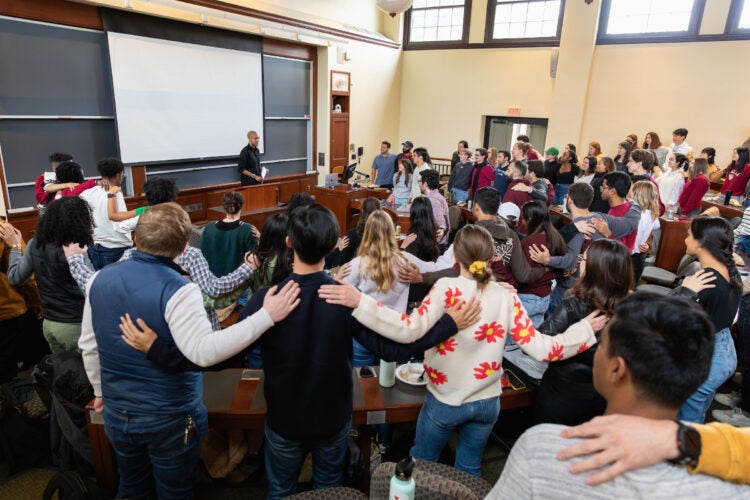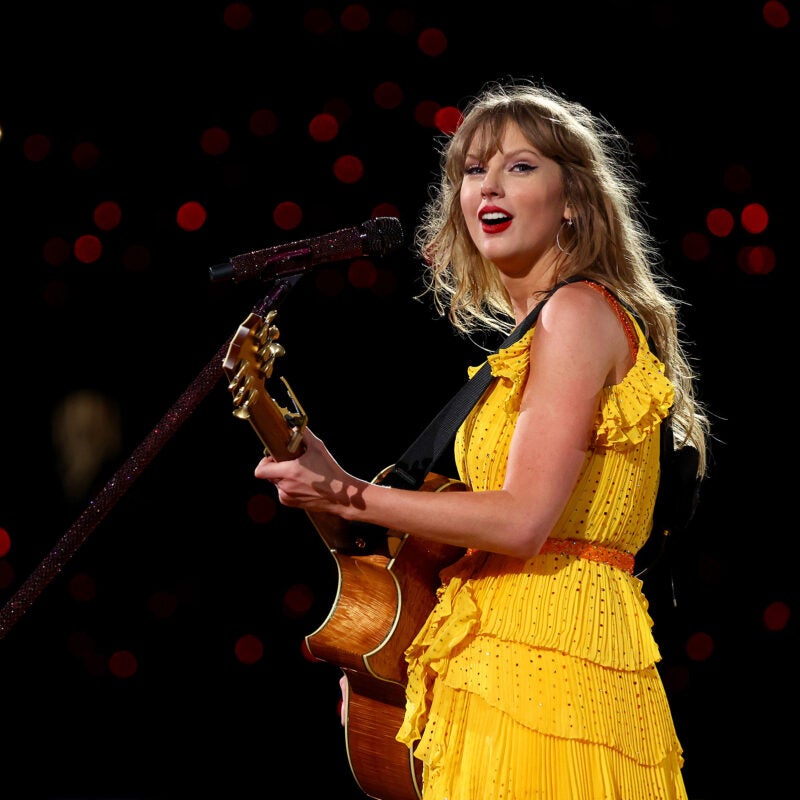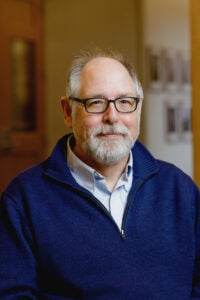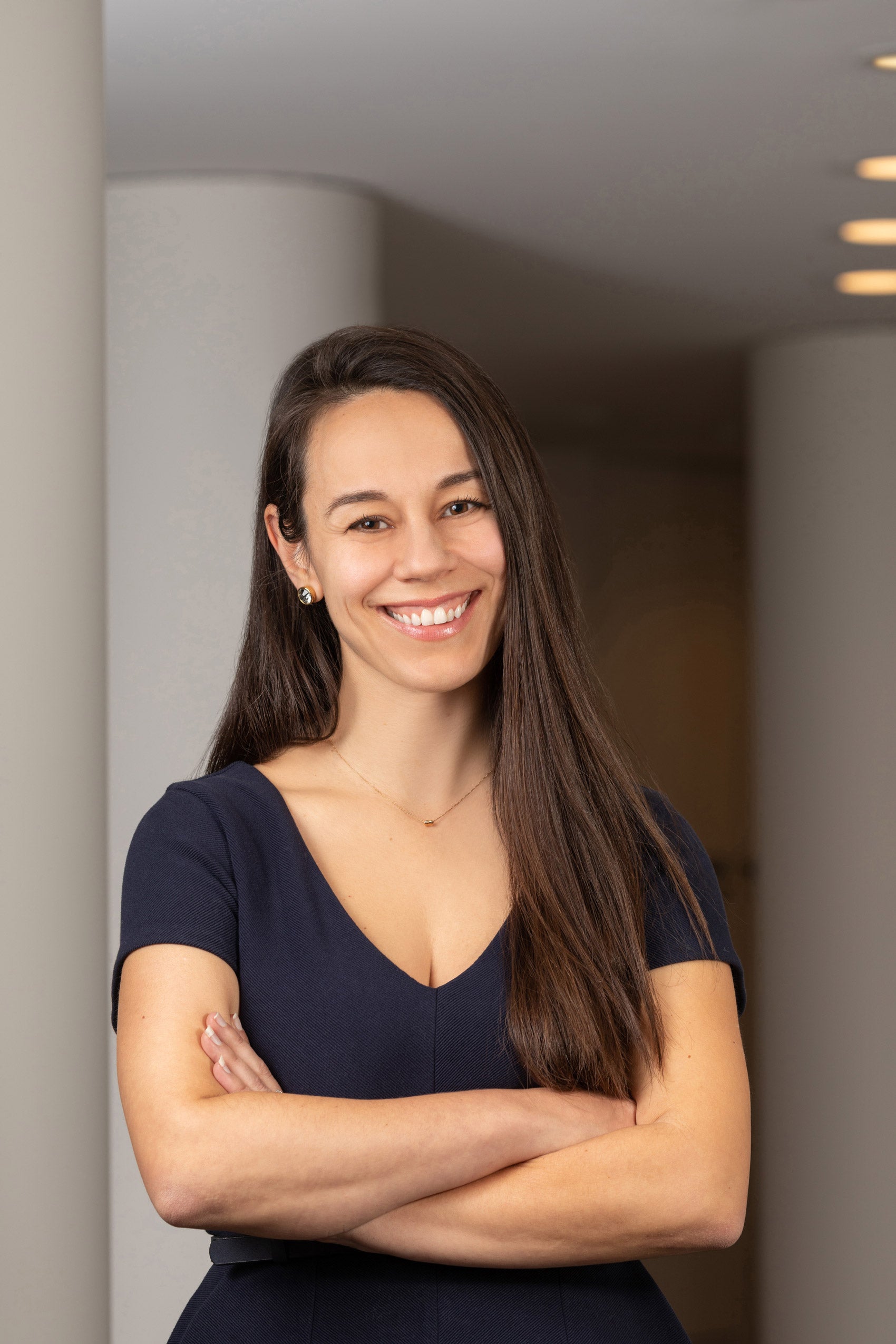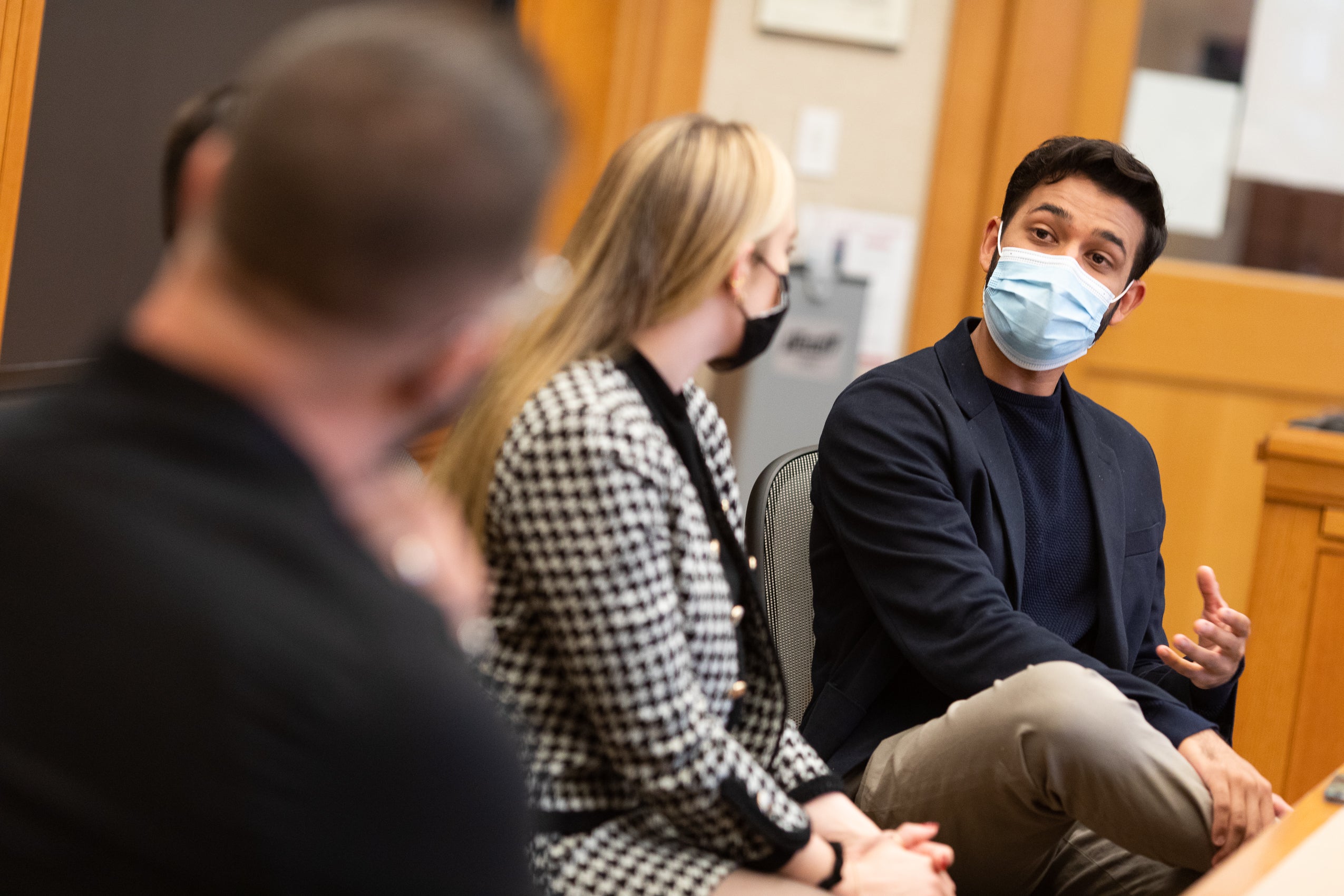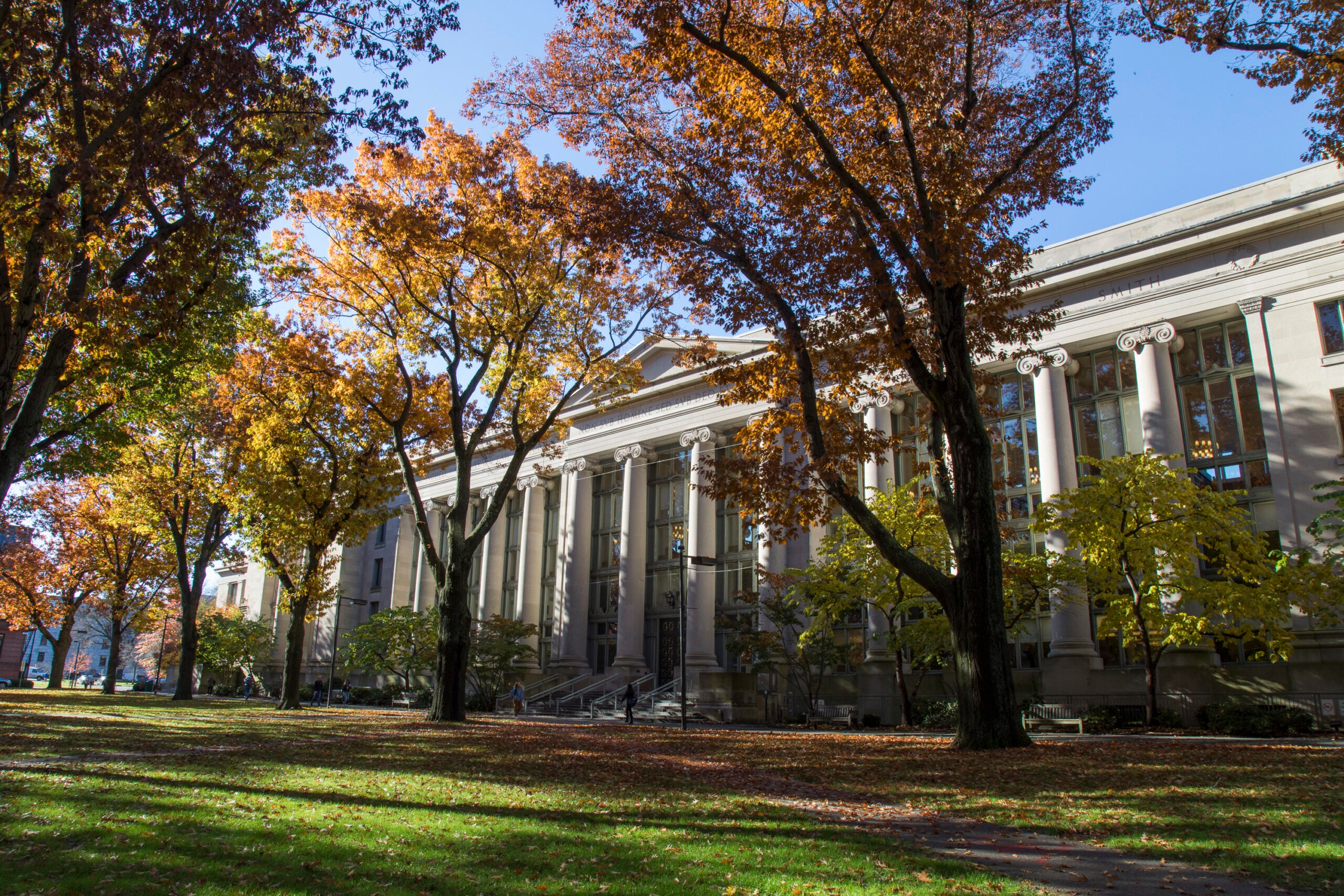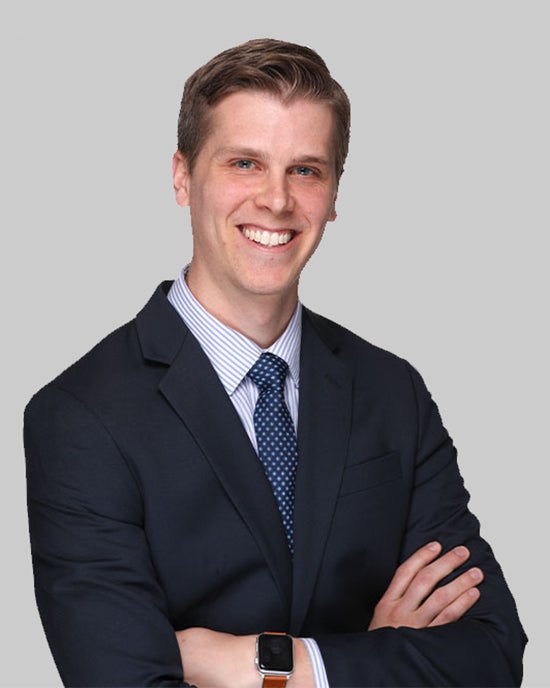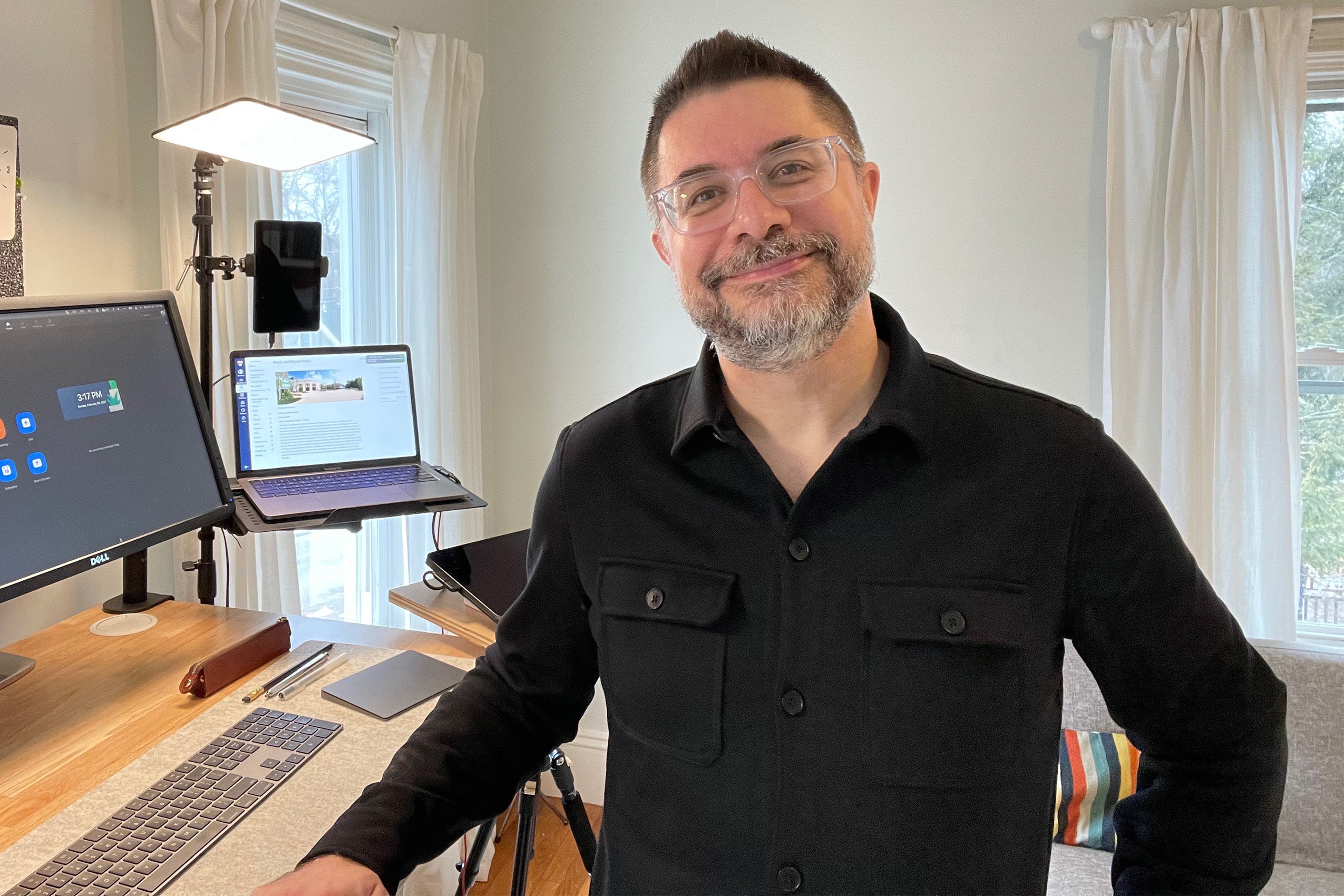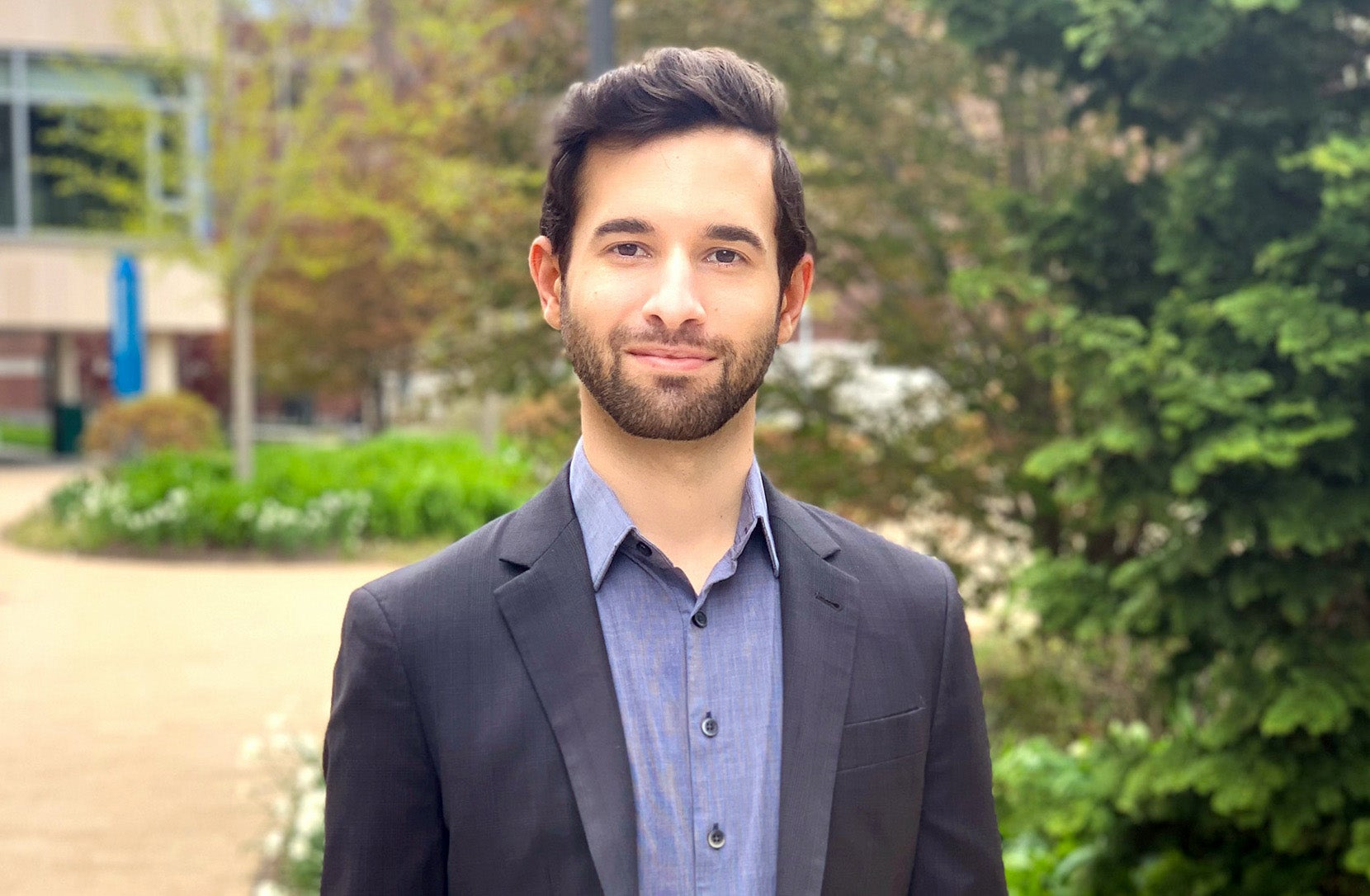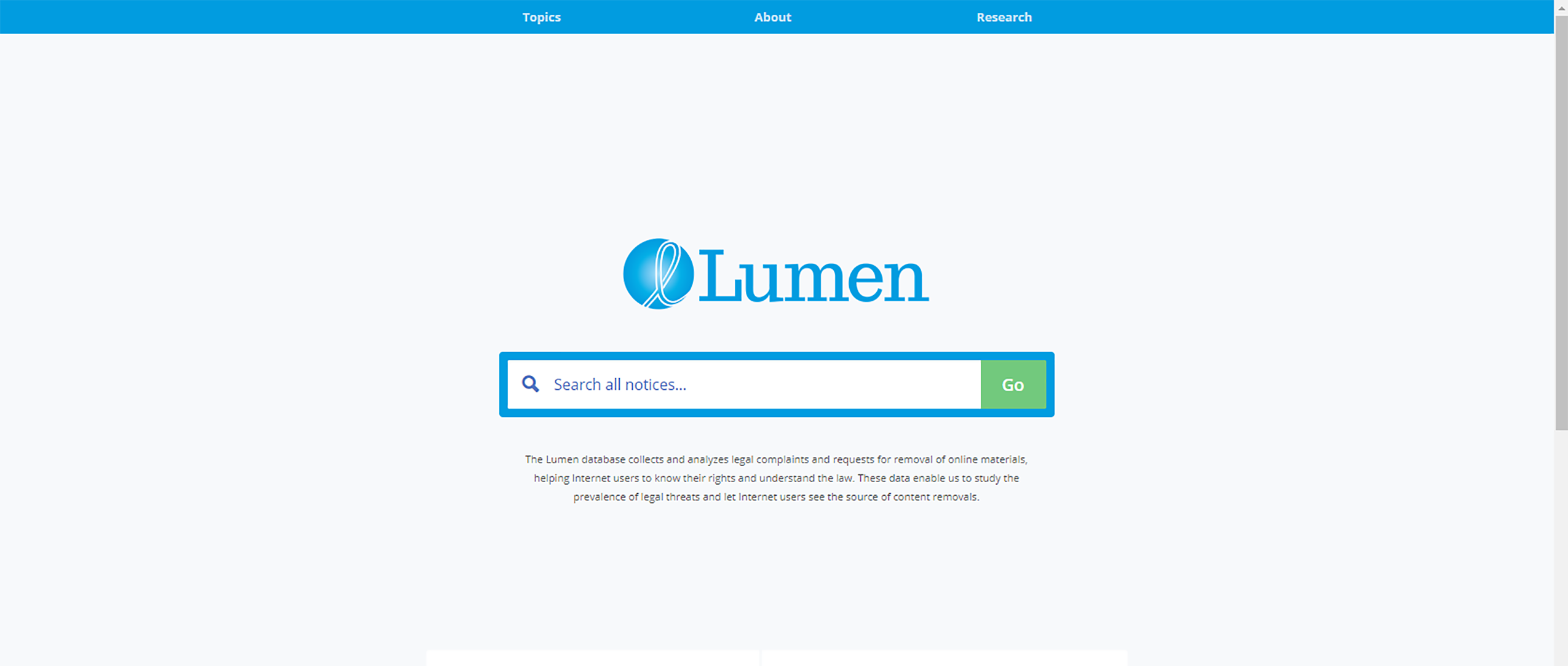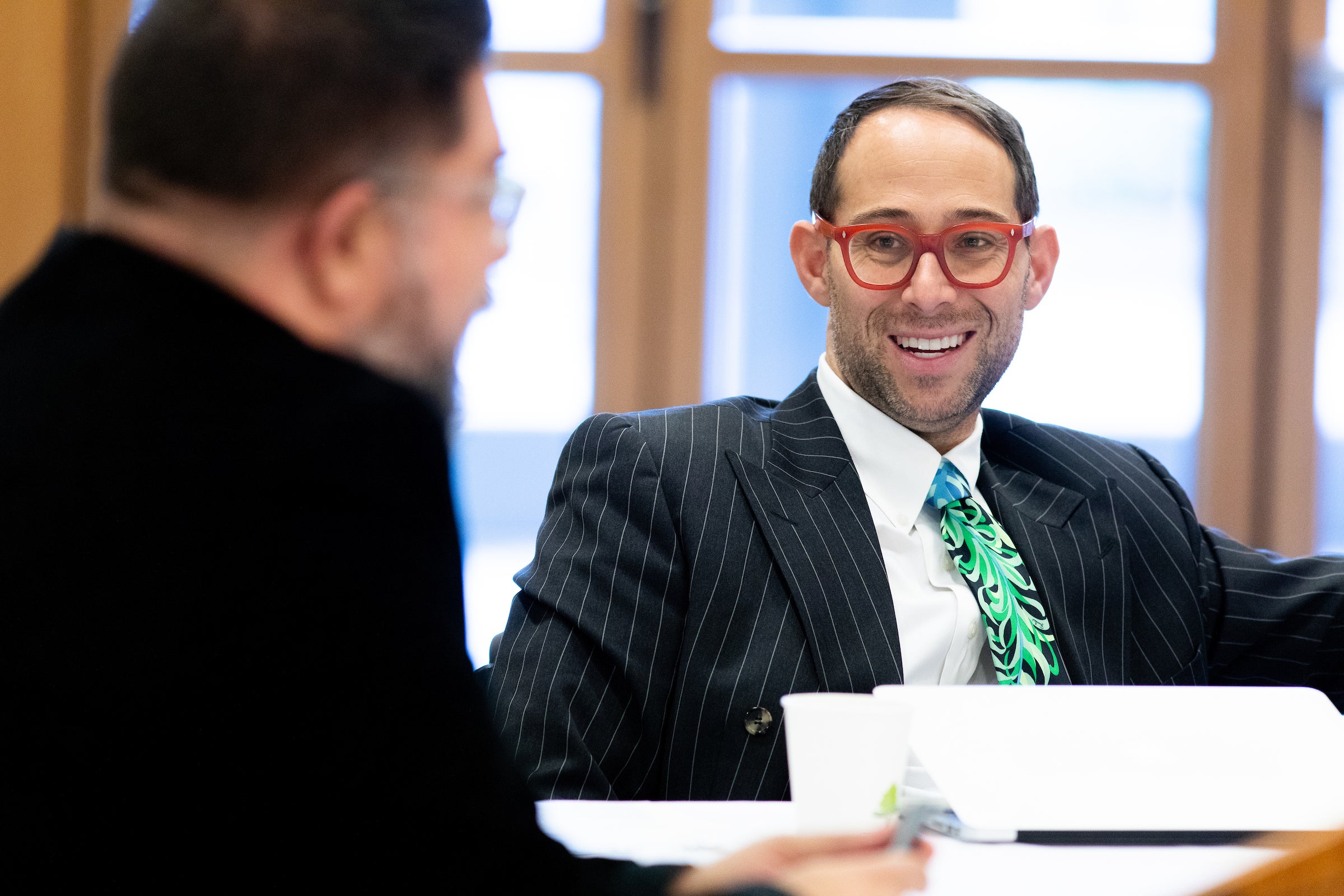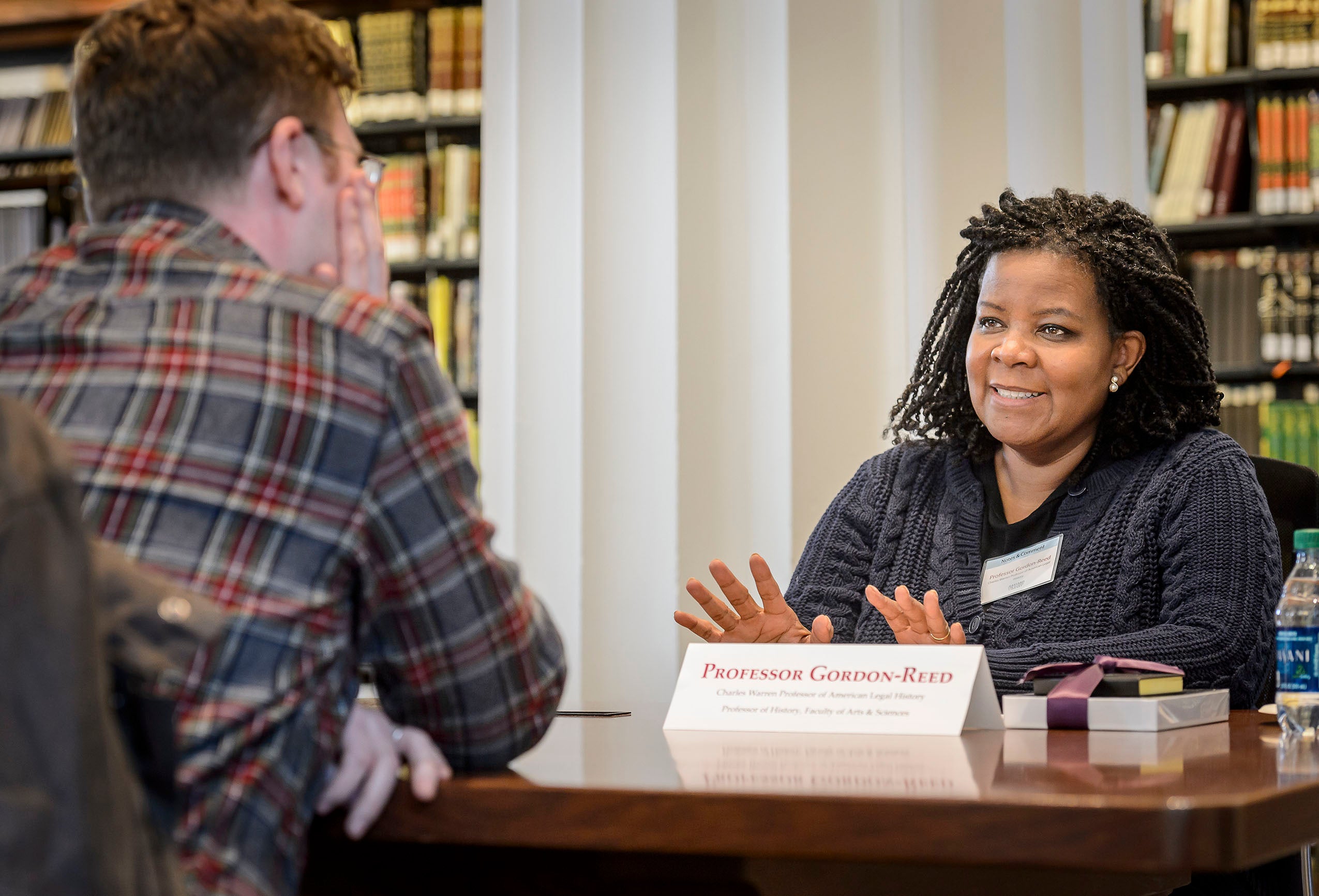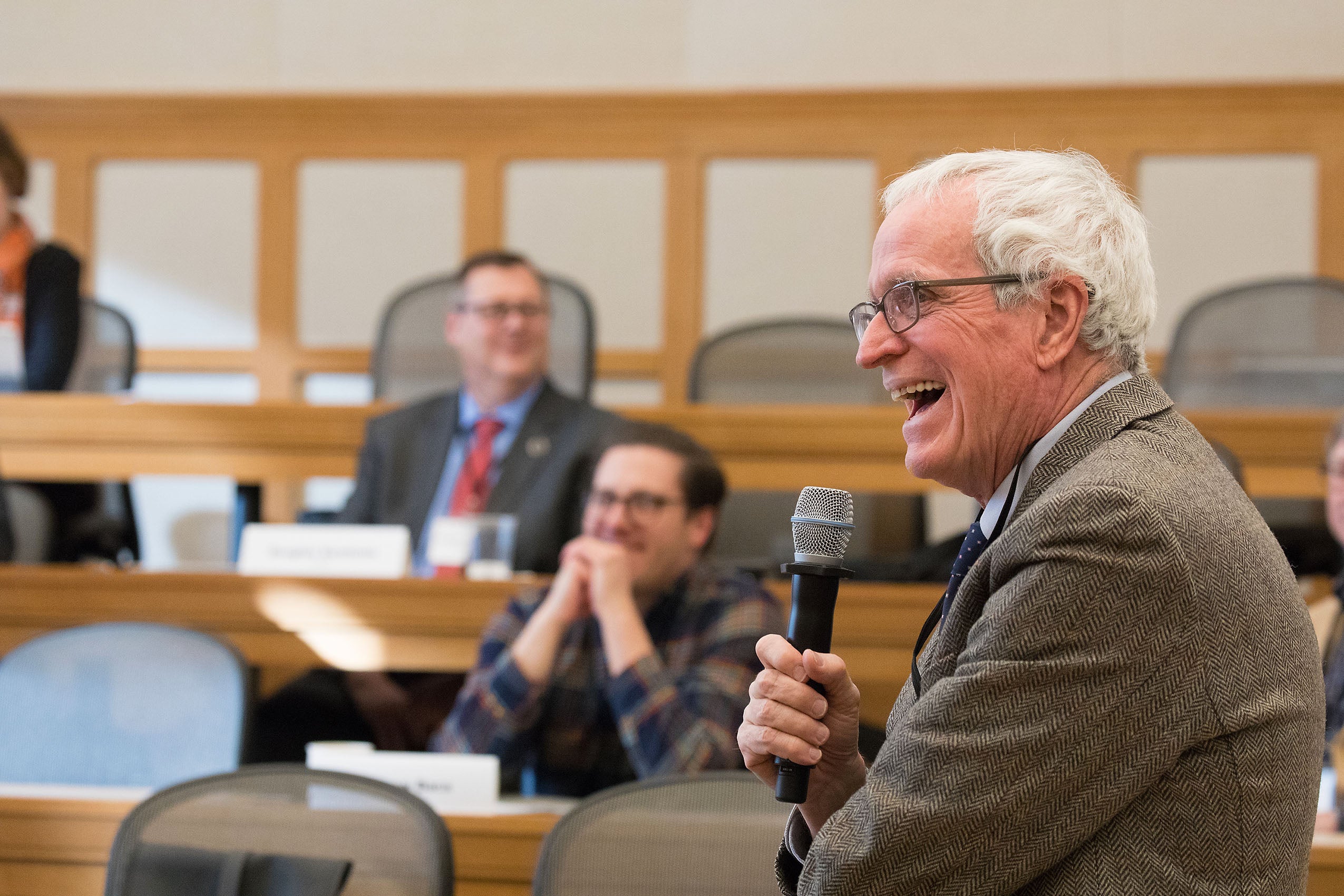People
Christopher Bavitz
-
Justices Dared To Draw Sexy M&M, Taco Hell For TM Fight
February 27, 2023
It’s hard to imagine a pun-filled U.S. Supreme Court case about a dog toy modeled after a poop-filled Jack Daniel’s bottle getting any weirder at…
-
Andrew Mergen will lead the Emmett Environmental Law and Policy Clinic at Harvard Law
January 3, 2023
Former Department of Justice chief and appellate lawyer Andrew Mergen will join Harvard Law School as director of the Emmett Environmental Law and Policy Clinic.
-
Meredith D.L. Boak ’12 has been appointed Harvard Law School’s assistant dean for Clinical and Pro Bono Programs, replacing Lisa Dealy, who retired in May after 30 years at the law school.
-
‘Innovation in the law is something students should use to challenge the status quo’
October 29, 2021
Growing up gay in Iraq, Amir Ashour ’24 saw firsthand many immediate needs for his nation’s LGBTQ+ community. Ashour told his story while speaking on a recent Social Entrepreneurs Student Panel hosted by the Office of Clinical and Pro Bono Programs.
-
Faculty on the move
September 1, 2021
With the start of the academic year, a look at nine faculty who have joined Harvard Law School, been promoted, or taken on new roles in 2021.
-
Harvard Law School has appointed Joshua C. McDaniel to serve as a visiting assistant clinical professor and as the director of its Religious Freedom Clinic.
-
Christopher Bavitz appointed Harvard Law School’s vice dean for experiential and clinical education
June 16, 2021
Harvard Law School’s Christopher T. Bavitz, the WilmerHale Clinical Professor of Law, has been appointed as vice dean for experiential and clinical education.
-
COVID adaptation
August 26, 2020
As the COVID-19 pandemic continues to rage across the globe, affecting every aspect of human society, Harvard Law School finds itself at a pivotal moment in legal education. From the crisis, and the challenges and opportunities of remote learning, it is wresting pedagogical innovations that are transforming what it means to get a legal education.
-
João Marinotti ’20 wants to know how the world works
May 27, 2020
“I’ve always had a passion for engaging in my curiosity,” says João Marinotti ‘20, a linguist turned lawyer whose work focuses on sustainability, business, property, and private law.
-
Cyberlaw Clinic turns 20
April 9, 2020
It was 1999 and the dot-com bubble was about to burst. Corporations were scrambling to address new legal challenges online. Napster was testing the music industry. And at Harvard Law School, the Berkman Klein Center was creating a clinical teaching program specializing in cyberlaw.
-
Shedding light on fraudulent takedown notices
December 12, 2019
What happens if bad actors deliberately falsify and submit court documents requesting the removal of content? Research using the Berkman Klein Center for Internet & Society’s Lumen database shows the problem is larger than previously understood.
-
Health care general counsels explore pressing health policy and legal issues at Harvard Law School
December 11, 2019
The General Counsels Roundtable helps influential health law attorneys stay on top of or even ahead of changes in health law and policy. The roundtable connects GC to experts at HLS and the broader university, while also strengthening ties between faculty and legal practice.
-
Collaboration zone
April 26, 2019
Library event provides unique opportunity for faculty-student interaction.
-
The Law and the Digital World
April 3, 2019
Officials from 23 offices of state attorneys general recently met at HLS as part of the Berkman Klein Center’s AGTech Forum series, to discuss tech-driven challenges to privacy and data security that vex state regulators and threaten consumers, and to strategize on how the law can keep up.
-
Tech Giants, Profs Push Justices To Take Google-Oracle Case
February 26, 2019
Major technology companies, software developers, legal scholars and others have filed a flood of amicus briefs urging the U.S. Supreme Court to take up Google's appeal in the company's yearslong copyright battle with Oracle over use of copyrighted code in Android smartphones. ... The eight law professors are represented by Christopher T. Bavitz of Harvard Law School.
-
The Library Innovation Lab at Harvard Law School published a full collection of United States court cases dating from 1658 to 2018 on Monday as part of a years-long project to make case law more accessible. The initiative, dubbed the Caselaw Access Project, digitized more than 40 million pages of U.S. state, federal, and territorial case law documents from the Law School library. Though basic information for all cases in the database is now publicly accessible, users are limited to five hundred full case texts per day. Harvard affiliates currently have unlimited access to all case texts. Adam Ziegler, who directed the project, said his team worked on the Caselaw Access Project for more than six years. “It started with the simple observation that there was a real need for ready access to court opinions,” Ziegler said...Several Law School faculty members expressed their optimism about the project and its potential. Law School Professor I. Glenn Cohen called the project “a game changer,” and Law School Professor Christopher T. Bavitz said the initiative will bring about “enormous benefits” for teaching, research, and legal analysis.
-
Roughly two dozen Harvard Law School professors have signed a New York Times editorial arguing that the United States Senate should not confirm Judge Brett M. Kavanaugh as an Associate Justice of the Supreme Court. Harvard affiliates — including former Law School Dean Martha L. Minow and Laurence Tribe — joined more than 1,000 law professors across the country in signing the editorial, published online Wednesday. The professors wrote that Kavanaugh displayed a lack of “impartiality and judicial temperament requisite to sit on the highest court of our land” in the heated testimony he gave during a nationally televised hearing held Sept. 27 in front of the Senate Judiciary Committee....As of late Wednesday, the letter had been signed by the following: Sabi Ardalan, Christopher T. Bavitz, Elizabeth Bartholet, Christine Desan, Susan H. Farbstein, Nancy Gertner, Robert Greenwald, Michael Gregory, Janet Halley, Jon Hanson, Adriaan Lanni, Bruce H. Mann, Frank Michelman, Martha Minow, Robert H. Mnookin, Intisar Rabb, Daphna Renan, David L. Shapiro, Joseph William Singer, Carol S. Steiker, Matthew C. Stephenson, Laurence Tribe, Lucie White, Alex Whiting, Jonathan Zittrain
-
Evaluating the impact of artificial intelligence on human rights
September 27, 2018
AI-based tools are increasingly being used by people and organizations in positions of authority to make important, often life-altering decisions. A new report from the Berkman Klein Center for Internet & Society addresses this issue and weighs the positive and negative impacts of AI on human rights.
